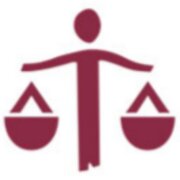Best Native People Lawyers in Cape Town
Share your needs with us, get contacted by law firms.
Free. Takes 2 min.
List of the best lawyers in Cape Town, South Africa
About Native People Law in Cape Town, South Africa:
Native People in Cape Town, South Africa refer to individuals who are of indigenous descent and have a unique legal status within the country. The legal system in South Africa recognizes the rights of Native People to their ancestral lands, cultural practices, and self-governance.
Why You May Need a Lawyer:
You may need a lawyer specializing in Native People law in Cape Town if you are facing issues related to land disputes, cultural heritage protection, discrimination, or seeking legal recognition for your indigenous identity. A lawyer can help you navigate the complex legal system and advocate for your rights.
Local Laws Overview:
Key aspects of local laws that are relevant to Native People in Cape Town include the recognition of customary law, protection of indigenous land rights, and the promotion of cultural diversity. These laws aim to uphold the rights and autonomy of Native People within the legal framework of South Africa.
Frequently Asked Questions:
1. What are the rights of Native People in Cape Town, South Africa?
Native People in Cape Town have rights to their ancestral lands, cultural practices, and self-governance under the legal system of South Africa.
2. How can I protect my indigenous identity and heritage?
You can protect your indigenous identity and heritage by seeking legal recognition and advocating for the preservation of cultural practices.
3. Are there specific laws that protect Native People in Cape Town?
Yes, there are laws in South Africa that protect the rights of Native People, such as the Recognition of Customary Marriages Act and the Traditional Leadership and Governance Framework Act.
4. Can I reclaim ancestral lands as a Native Person in Cape Town?
Reclaiming ancestral lands can be a complex legal process, but a lawyer specializing in Native People law can help guide you through the necessary steps.
5. How can I resolve land disputes with other parties?
A lawyer can help mediate land disputes and negotiate on your behalf to reach a fair resolution.
6. What legal options do I have if I face discrimination as a Native Person?
You can seek legal recourse through anti-discrimination laws in South Africa and work with a lawyer to advocate for your rights.
7. How can I ensure that my cultural practices are respected and protected?
You can seek legal protection for your cultural practices by advocating for recognition under South African laws and working with organizations that support indigenous rights.
8. Can I practice traditional customs and rituals freely in Cape Town?
Yes, you have the right to practice traditional customs and rituals as a Native Person in Cape Town, as long as they do not conflict with the laws of the country.
9. Are there organizations that provide legal assistance to Native People?
There are organizations in South Africa that specialize in providing legal assistance to Native People, such as the Indigenous Law Institute and the Centre for Indigenous Knowledge Systems.
10. How can I get in touch with a lawyer specializing in Native People law in Cape Town?
You can search for lawyers specializing in Native People law in Cape Town online, contact local legal organizations, or ask for recommendations from community members.
Additional Resources:
For additional resources and support related to Native People in Cape Town, South Africa, you can reach out to the Department of Indigenous Affairs, the South African Human Rights Commission, and the National Khoisan Council.
Next Steps:
If you require legal assistance related to Native People in Cape Town, it is recommended to seek out a lawyer specializing in indigenous law to help you navigate the legal system and advocate for your rights. You can schedule a consultation to discuss your specific needs and explore your legal options.
Lawzana helps you find the best lawyers and law firms in Cape Town through a curated and pre-screened list of qualified legal professionals. Our platform offers rankings and detailed profiles of attorneys and law firms, allowing you to compare based on practice areas, including Native People, experience, and client feedback.
Each profile includes a description of the firm's areas of practice, client reviews, team members and partners, year of establishment, spoken languages, office locations, contact information, social media presence, and any published articles or resources. Most firms on our platform speak English and are experienced in both local and international legal matters.
Get a quote from top-rated law firms in Cape Town, South Africa — quickly, securely, and without unnecessary hassle.
Disclaimer:
The information provided on this page is for general informational purposes only and does not constitute legal advice. While we strive to ensure the accuracy and relevance of the content, legal information may change over time, and interpretations of the law can vary. You should always consult with a qualified legal professional for advice specific to your situation.
We disclaim all liability for actions taken or not taken based on the content of this page. If you believe any information is incorrect or outdated, please contact us, and we will review and update it where appropriate.












